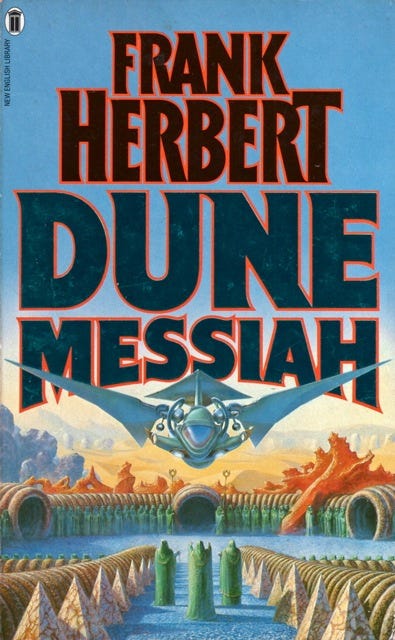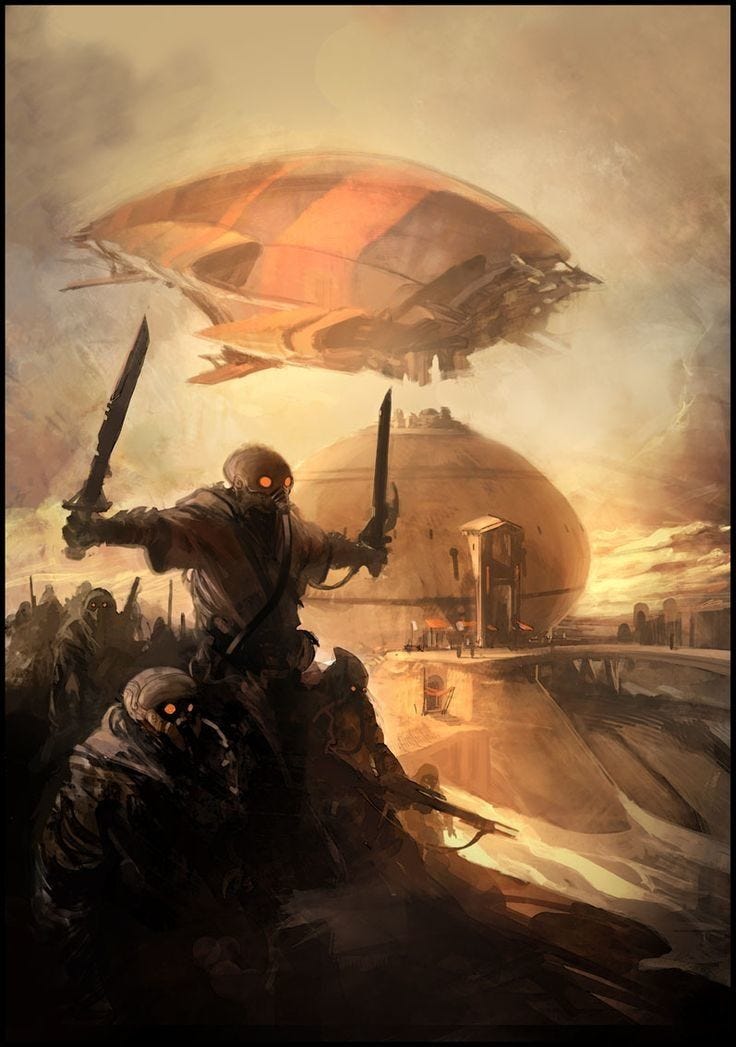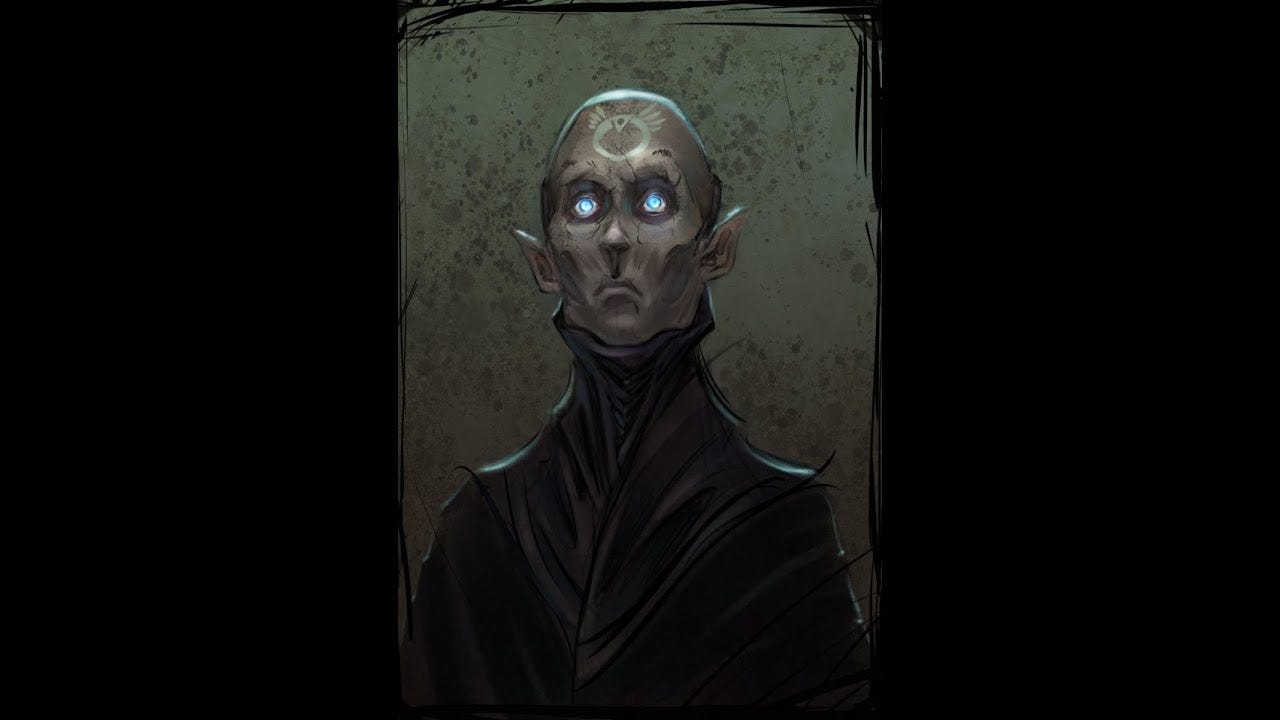Dune Messiah by Frank Herbert
Paul Atreides has been emperor of the known universe for 12 years. In those 12 years the religious zealotry that he and his mother intentionally ignited and took advantage of in Dune, have prompted Paul’s Fremen to spread across the known universe, waging holy Jihad (note the recent movies steer clear of this word for rather obvious reasons, but it is heavily used in the books). They have sterilized 90 planets, murdered over sixty-one billion people, and wiped out more than 40 different religions.
Alia, Paul’s sister, and full Bene Gesserit Reverend Mother upon her birth, now leads the endless throng of pilgrims arriving on Dune from across the known universe, in prayer. Engaging her own oracular powers, she prophesies for them, driving them to religious ecstasy.
Jessica, Paul’s mother has retreated to Caladan, Paul’s birth world, where she refuses to allow her home planet to be a stop on the Fremen religious pilgrimage undertaken by billions of souls.
And for mysterious reasons, Chani is unable to become pregnant, unable to provide Paul with an heir.
Paul’s strangle-hold on the spice is total, and therefore so too is his control over the Spacing Guild, The Bene Gesserit sisterhood, CHOAM and nearly every other power center in the known universe.
In this environment, Paul’s actions breed resentment, and his enemies convene in secret counsel to destroy him. The conspirators consist of the reverend mother Helen Gaius Mohaim, she who held the Gom Jabbar to Paul’s neck, Irulan, Paul’s wife in name only and daughter of the previous Padishah emperor, Bijaz a seemingly mad dwarf who only speaks in riddles, Korba, the head priest of Paul’s religion, and finally a Face Dancer of the Bene Tlielax named Scytale.
This new group, The Bene Tlielax, are human shape shifters, able to take on the appearance, voice, and mannerisms of another.
I won’t give away the nature of the conspiracy except to say that it involves a Ghola (Tlielaxu word for clone) named Hayt, whom the Tlielaxu have created from the dead flesh of Duncan Idaho and will give to Paul as a gift.
Dune Messiah is a continuation of Herbert’s meditation on power, politics, religion, and psychology. The central theme is the price Paul must pay for his oracular vision. Paul’s prescience grants him insight into all possible futures, but it comes at a cost. He is haunted by visions of various futures in which humanity is annihilated, or in which it is engaged in endless cycles of multi-generational violence, or in which he rules with an iron fist, brutally putting down dissent and unrest.
Unlike in Dune, where Paul sees the eventuality of the Jihad but chooses to step into the flow of prophecy anyway, here Paul is desperately seeking a way out of it. He is locked into a course of action to avoid the worst possible outcomes of his prophecy, but that course of action leads to an inevitable end. In the following passages, the moon represents Paul and his empire.
“It had taken a massive dose of the spice essence to penetrate the mud thrown up by the tarot. All it had shown him was a falling moon and the hateful way he’d known from the beginning. To buy an end for the Jihad, to silence the volcano of butchery, he must discredit himself.”
Paul has come to understand himself not as the God other see, but as a man trapped by forces so much larger than himself that he can never hope to control or direct them.
“Frustration tangled him. He felt the pressure of the mass-unconscious, that burgeoning sweep of humankind across his universe. They rushed upon him with a force like a gigantic tidal bore. He sensed the vast migrations at work in human affairs: eddies, currents, gene flows. No dams of abstinence, no seizures of importance nor maledictions could stop it.
Muad’dib’s Jihad was less than an eye-blink in his larger movement. The Bene Gesserit swimming in this tide, that corporate entity trading in genes, was trapped in the torrent as he was. Visions of a falling mood must be measured against other legends, other visions in a universe where even the seemingly eternal stars waned flickered, died…
What mattered a single moon in such a universe?”
Taken together Dune and Dune Messiah serves as a warning against blindly following charismatic leaders and the manipulation of religious fervor for political gain. This book is a continuation of the warning against idolizing and surrendering agency to the powerful, and an exploration of what the powerful will do, and the lengths they will go to maintain their power. In is, in effect, encouragement of critical thinking, and vigilance against authoritarianism and exploitation.
“When religion and politics travel in the same cart, the riders believe nothing can stand in their way. Their movements become headlong - faster and faster and faster. They put aside all thoughts of obstacles and forget the precipice does not show itself to the man in a blind rush until it's too late.” – Dune.





I only read/watched a little to avoid spoilers. I'll return once I've read it. But it sounds good.